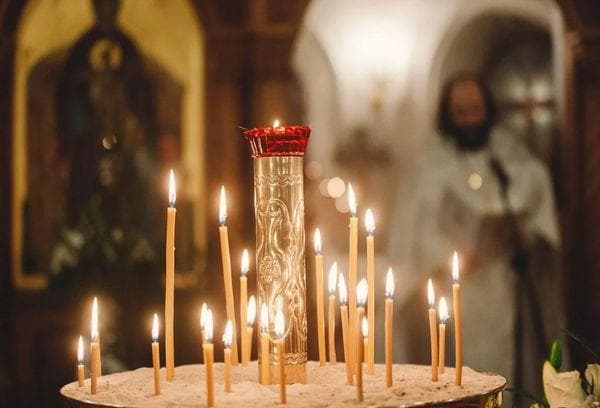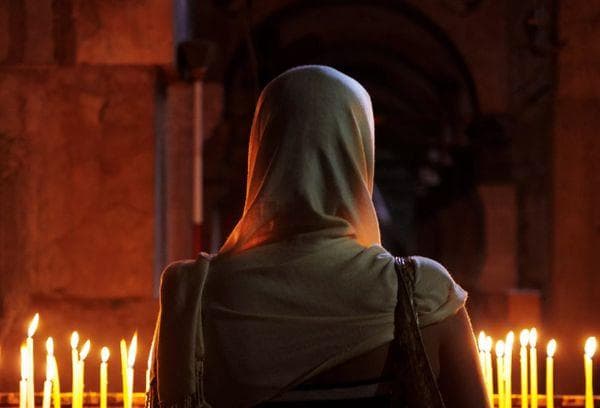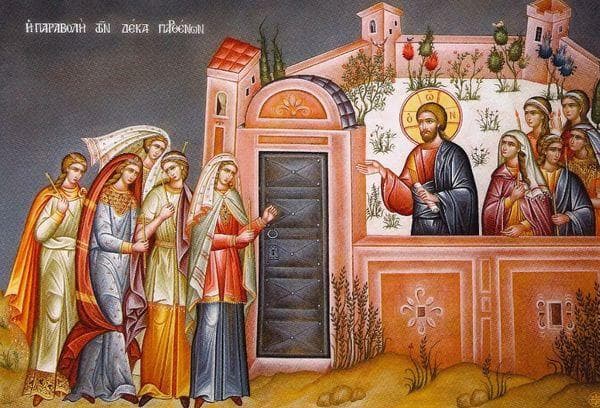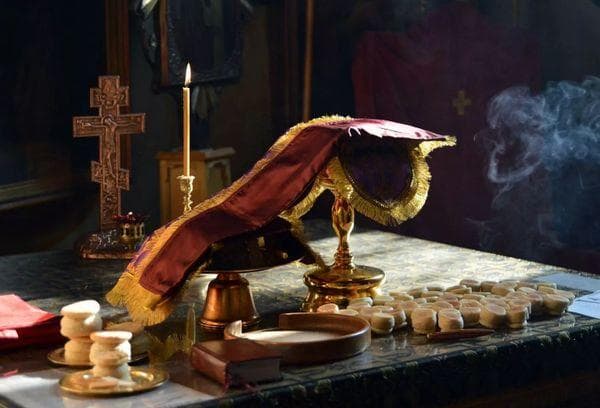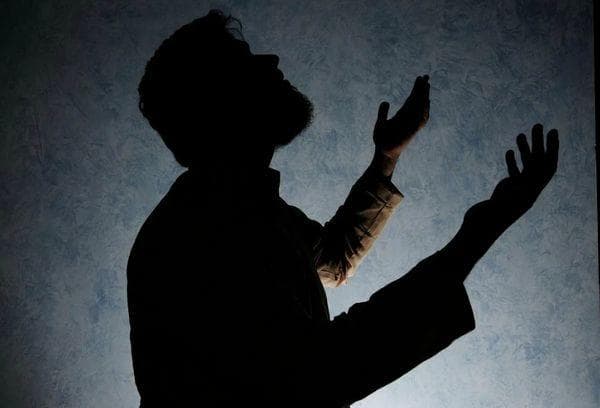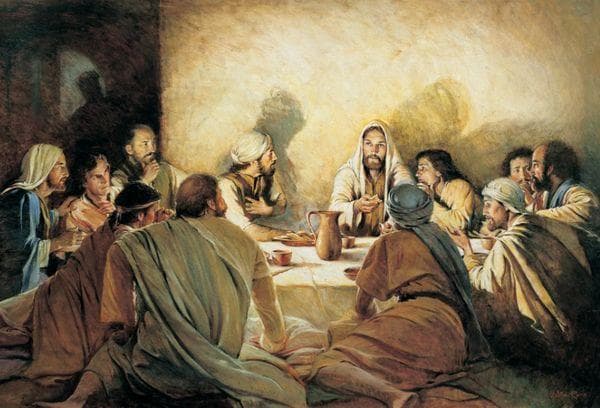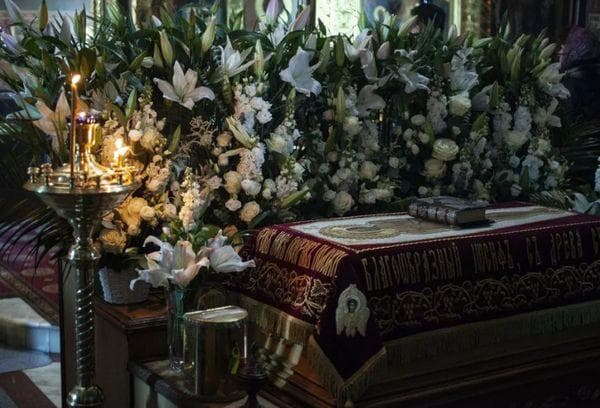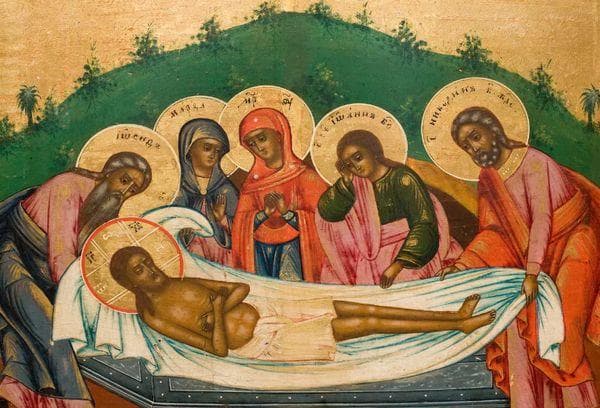What to do before Easter. The meaning of Holy Week: a to-do list for every day in 2022
Content:
Holy Week in 2022 will take place from April 18 to 22. For every Christian, these six days before Easter are the most important. The time comes to think: “how successful have I been in overcoming sins?” After all, it was for this that Jesus Christ gave his life.
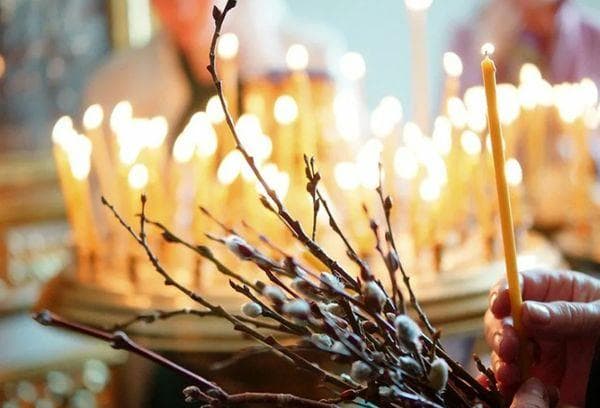
The last week of Lent is also called “terrible” because of the events preceding the Resurrection: the betrayal of Judas, the crucifixion of the Savior on the cross. At the same time, this is a week of great miracles. Therefore, all her days are Great. Holy Week, filled with touching services. Due to the quarantine in 2022, many churches will conduct online broadcasts.
The meaning of each day
The entire Holy Week is dedicated to the last days of the life of Jesus. Orthodox Christians walk the last path with Him, attending services or reading special prayers (Gospel of each day, troparion, kontakion).
The meaning of each day is special, with its own meaning and service.
Believers try not to miss a single service. The services of Maundy Thursday, Good Friday and Holy Saturday are considered especially important.
Monday
During the first three days of Holy Week, the services of Lent are still held: the Hours, the Fine Hours, and the Liturgy of the Presanctified Gifts. The full Gospel is read in parts.
On the first day they remember the Old Testament Joseph and the withered fig tree. Chaste Joseph, humiliated and sold by his brothers, and later restored by God, is a type of Christ. Jesus will also suffer the envy of his fellow tribesmen. His own student sells it for 30 pieces of silver. Having gone through terrible torment, Jesus is imprisoned in a tomb (instead of a narrow ditch), and, rising from it with his own power, reigns over Egypt.
The main theme of Holy Monday is the approach of the Judgment. The Savior sits with his disciples in the shade of olive trees. The disciples ask Him: “Tell us when the End will be, and what is the sign of Your coming?”
The curse of the fig tree is full of symbolic and spiritual meaning. By drying up a tree that did not bear fruit, Jesus demonstrated divine power. Six months before the Crucifixion, the Lord tells a parable about a winegrower. For three years the owner of the vineyard did not find fruit on the tree and ordered it to be cut down. But the winegrower resisted and convinced him to wait another year. They say he will dig up and fertilize the fig tree, and perhaps it will bear fruit. And if he doesn’t give it, he’ll cut it down. Which is exactly what happened. The fig tree symbolizes the Jewish people, whom the Savior fertilized with his preaching, the vineyard symbolizes the Church and earthly life, and the vinedresser symbolizes Jesus.
What to do and how?
Throughout Holy Week, starting with Holy Monday, they are engaged in cleansing their homes and their souls.
The work is carried out both physical and spiritual:
- You need to think about the fact that a soul without faith, like a barren fig tree, will not bear any fruit.
- The house must be renovated and everything old and broken should be thrown away.
- As for food, restrictions will become stricter from Monday. During the last week of Lent, Orthodox Christians eat very sparingly, usually only in the evening.
- On the first day of the week you need to eat raw fruits and vegetables. You are allowed to eat nuts and bread with honey.
For pregnant and lactating women, children, as well as people with health problems, fasting is greatly mitigated. They can eat any low-fat food, but it is still advisable to avoid meat.
Tuesday
On Tuesday morning Jesus came to Jerusalem to teach the people. Even then the high priests wanted to arrest him, but they were afraid. Instead, they asked Christ tricky questions. He told the parable of the talents and the ten virgins, the payment of taxes to Caesar, the second coming, the greatest commandment in the Law.
On Holy Tuesday, the temple remembers the story of the salvation of the baby Moses and the first test of Job. They tell of trials for the faithful. In this way, believers are prepared to think about the coming suffering of Christ. At the service, the troparion “Behold the Bridegroom comes at midnight” and the luminary “I see Your palace, my Savior” are performed three times. They remind us of the Last Judgment and how important it is to be spiritually awake.
On this day, Orthodox Christians need to think about how worthy they are to witness Holy Week.
What to do and how?
People often ask what to do every day during Holy Week? There are no clear instructions for the first half of the week. On Maundy Tuesday:
- The Orthodox continue to put things in order in the house.
- Often on this day they buy food for celebrating Easter, prepare a towel and festive clothes for the Easter service.
- We need to remember the life path of Jesus Christ, read the Gospel, and pray.
- On Tuesday they continue to eat only raw vegetables and fruits, as well as nuts and honey.
On Holy Tuesday, Orthodox Christians try to do a good deed. For example, to help frail old people and sick children. The parable of the ten virgins teaches that, having accepted faith, one must accompany it with good deeds. This is how spiritual life is maintained.
In Russian villages on Tuesday of Holy Week there was a tradition of preparing “juiced milk”. The women woke up before dawn and collected flax and hemp seeds from the bins. The seeds were poured into a mortar, pounded for a long time, and then diluted with water. The resulting “milk” was used to feed livestock to protect them from disease. Men were forbidden to see “juiced milk”.
Wednesday
Jesus spent Wednesday night in the house of Simon the leper in Bethany. At this time, a council of high priests and warlocks had already taken place. It was decided to take Jesus by cunning and kill him. A certain “sinner” wife spilled myrrh on the Savior’s head, and thereby prepared Him for burial. On the same day, Judas intended to betray his Teacher for 30 pieces of silver.
At the service on Great Wednesday, the Orthodox “sinner” wife and love of money, which led to the murder of Jesus, are condemned. Orthodox Christians are preparing for repentance. In the evening there is a general confession.
What to do and how?
On the third day of Holy Week, some Orthodox Christians try to finish cleaning in order to dedicate Maundy Thursday to physical and spiritual cleansing. Today:
- They sweep all the trash out of the house, clean up the utility rooms and yard, and mend things.
- They fast strictly, eating only raw vegetables and fruits.
- They reflect on their sinfulness, forgive offenses and ask for forgiveness from their neighbors.
- The day ends with confession.
On Wednesday, Russian peasants doused their cattle with melt water, which they collected from ravines. A pinch of Thursday salt (from last year) was added to each bucket. The ritual was supposed to protect domestic animals from the unclean, unknown illnesses and the evil eye.
Thursday
On Maundy Thursday, churches remember the Last Supper. This is the last supper of Jesus Christ with his disciples. According to the Holy Scriptures, he gave them wine and bread, calling them his blood and body, which he voluntarily sacrifices for the salvation of all people. The events of Maundy Thursday marked the beginning of such a church rite as communion.
In the evening, Jesus washed the feet of his disciples, teaching them a lesson in humility and service to their fellow man.
As a sign of memory of this event, during services in cathedrals, the bishop washes the feet of 12 priests (monks). Orthodox Christians read the Savior's prayer in the Garden of Gethsemane. In the morning the Liturgy of St. Basil the Great is celebrated, and in the evening the 12 Gospels are read about the last hours of the Savior and his suffering on the cross.
What to do and how?
Maundy Thursday in Russia is known as “Clean Thursday”. Today you need to finish cleaning up the house, as well as cleanse your soul and body.
For a long time in Rus', a bathhouse was heated on this day. The housewives zealously scraped the floors, washed the benches, windows, washed all the linen, and shook out the rugs. Thursday to-do list for Orthodox Christians:
- It is believed that on Thursday you need to have time to swim before sunrise. They wash for the second time after finishing cleaning the house (usually in the bathhouse).
- On this day, general cleaning is carried out: windows, toilets and bathrooms, tiles, floors behind furniture are washed. They also wash bedding and clothes.
- Mass communion is celebrated on Thursday. Parishioners receive communion after confession. An important rule is fasting. “What better time to receive communion from the Cup of Life than in the coming days, when it is given to us, one might say, from the hands of the Lord Himself?”
- In the evening, a special service is held in the temple. Excerpts from the Gospel dedicated to the suffering of Jesus are read. During the service, parishioners hold lighted candles, which they then take home and illuminate their home.
- On this day you can start preparing festive food for Easter: Easter cakes, eggs, meat and other dishes.
- If it is not possible to attend the service, it is advisable to read the 12 Passionate Gospels (on your own, or during an online broadcast of the service).
People also burned salt on Maundy Thursday. It was believed that Thursday salt had healing properties and protected against the evil eye and evil spirits. But the Church calls this superstition. In the temple they consecrate ordinary salt, not burnt.
Friday
Good Friday or Good Friday is the day of the Crucifixion. The Orthodox spend it in mourning.
On the last day of earthly life, the high priest Caiaphas conducts a night interrogation of Jesus Christ. He has to face intense bullying and beatings. This is followed by an interrogation with Pontius Pilate, the prefect of Judea. But considering the accusations of the high priests absurd, Pilate sends Jesus to the ruler of Galilee, Herod (since Jesus is a Galilean). Herod laughs at him and, dressed in white clothes, sends him back.
The prefect makes several attempts to release Jesus, but the crowd, persuaded by the high priests, is already shouting: “Crucify Him, crucify Him!” Something terrible is happening. For several hours the Lord suffers grievously, nailed to the Cross. But even then he prays for His murderers. On the Cross, he accepts the repentance of the thief crucified next to Him.
Jesus experiences all the horror of being abandoned by God.Having managed to overcome it, He utters the last words: “It is finished! Father! I commit My spirit into Your hands.”
The service begins at 8 pm and continues throughout the night. It is dedicated to the suffering of Christ. During the day, the Shroud (a large veil with the image of the crucified Jesus Christ) is brought to the middle of the temple. It is decorated with flowers and wrapped in incense. The second service takes place in the evening. Parishioners gather near the church and light candles. The shroud is carried around the temple.
What to do and how?
Good Friday is of the most mournful nature. On this day you need:
- Put aside all your business.
- On Friday, Orthodox Christians come to the temple to “say goodbye to the Savior.”
- At home, it is recommended to read the canon about the crucifixion of the Lord and “On the Lamentation of the Blessed Virgin Mary.” It is important to delve into these prayers, penetrate, and think about your own life.
- Believers refuse food on this day. Only after 6 pm you can eat some vegetables and fruits.
Saturday
Holy Saturday is the last day of Lent. God is buried and descended into hell to destroy it.
On this day, the body of Christ remains in the Tomb, so it is carried out in silent sorrow and joy.
The service of the sixth day is diluted with Old Testament prophecies about the Rising of the Savior. After the solemn prokeimenon “Rise up, O God, judge the earth,” all the clergy dress in white. This is a symbol of the victory of Christ and the beginning of Easter. But for now, instead of the Cherubic song, “Let all flesh be silent” is performed, calling for keeping the great secret.
What to do and how?
By 16:00 on Holy Saturday everything should be ready for the celebration of Bright Resurrection. What to do before Easter, and how:
- Give up hard work.You can bake Easter cakes and decorate eggs, which is what most working Orthodox Christians do.
- On Saturday you are allowed to eat hot vegetable food without oil (baked vegetables, lean soups, porridge, etc.).
- In the evening, Orthodox Christians go to church to bless food and stay for the all-night vigil. After the service, the joyful news is heard: “Christ is Risen!” Believers answer: “Truly He is Risen.”
Questions and answers
Why is Holy Week called this?
From Church Slavonic the word “passion” is translated as “suffering.” In addition, “passion” in Orthodoxy is a person’s attraction to a certain type of sin. Holy Week is a week filled with the suffering of the Savior due to human sins.
What should you not do during Holy Week?
In memory of the torment of Christ, one must fast strictly all week. You should avoid meat, poultry, fish, eggs, dairy products, sweets and wine. These days it is not customary to have fun, sing and dance, or celebrate any holidays. On Friday, Saturday and Sunday it is prohibited to work or clean. Special sins for Holy Week are considered to be foul language, condemnation and uncleanliness.
For Orthodox Christians, Holy Week is a time of mourning, strict fasting, and visiting church. Services are held daily that tell about the final journey of the Savior. The soul experiences shock from what is happening, and thereby is cleansed.
In the last week before Easter, believers lament their sinfulness and try to be kinder, cleaner, brighter. They refuse entertainment and food that brings pleasure. Almost all free time is devoted to prayer and good deeds. Holy Week ends with Bright Resurrection. Orthodox Christians rejoice, congratulate each other and break their fast.It is believed that the blessed egg should be eaten first.
